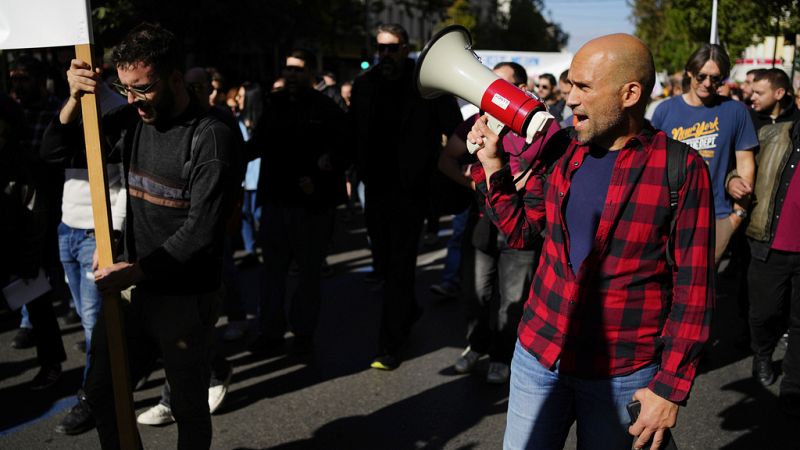Thousands of workers strike in Greece over high cost of living and pensions

Thousands of workers in Greece took to the streets of capital city Athens as part of a 24-hour general strike called by labour unions to protest the rising cost of living.
Labour unions held the general strike so as to coincide with the government's submission of its 2025 budget to Parliament.
The strike action, which was backed by both public and private sector workers, disrupted public transport and left ferries connecting the Greek islands with the mainland stranded in ports.
Around 12,000 protesters marched through central Athens, while another 5,000 took to the streets in the northern city of Thessaloniki, Greece’s second-largest.
Protesters say the government has refused to implement policies that will make lives better, with the unions criticising the centre-right government of Prime Minister Kyriakos Mitsotakis for failing to tackle inflation and housing policies, which have eroded workers’ living standards.
"The government cannot waste millions on military equipment; it cannot participate in the genocide of the Palestinian people by sending frigates and by wasting huge amounts for NATO's obligations," one protester told Euronews.
"We demand collective labour agreements, better working conditions for our colleagues, measures to deal with the crisis of high prices, and the most important thing that causes problems for young people — the housing crisis," said another.
Medical staff at state-run hospitals and teachers were among those who joined the strike on Wednesday to protest the high cost of living and demand collective wage agreements that were scaled back during Greece’s near decade-long financial crisis that began in 2010.
“We want to showcase the rage and resentment of salaried employees for what is happening to their income,” said Yannis Panagopoulos, head of the General Confederation of Workers of Greece, the umbrella union representing private sector workers.
“We have no other way to cope with the high cost of living other than with an increase to our income. But our incomes remain frozen in the bailout era,” he said.
Greece’s financial crisis saw a quarter of the country’s economy wiped out after decades of profligate spending left it locked out of international bond markets.
Successive international bailouts came with the condition the government implement deeply unpopular reforms that included pension and wage cuts and saw poverty and unemployment rates spiral.
Greece has since returned to healthy growth and recently achieved investment-grade status again, but it still retains the highest debt-to-GDP ratio in the European Union.
Yesterday

